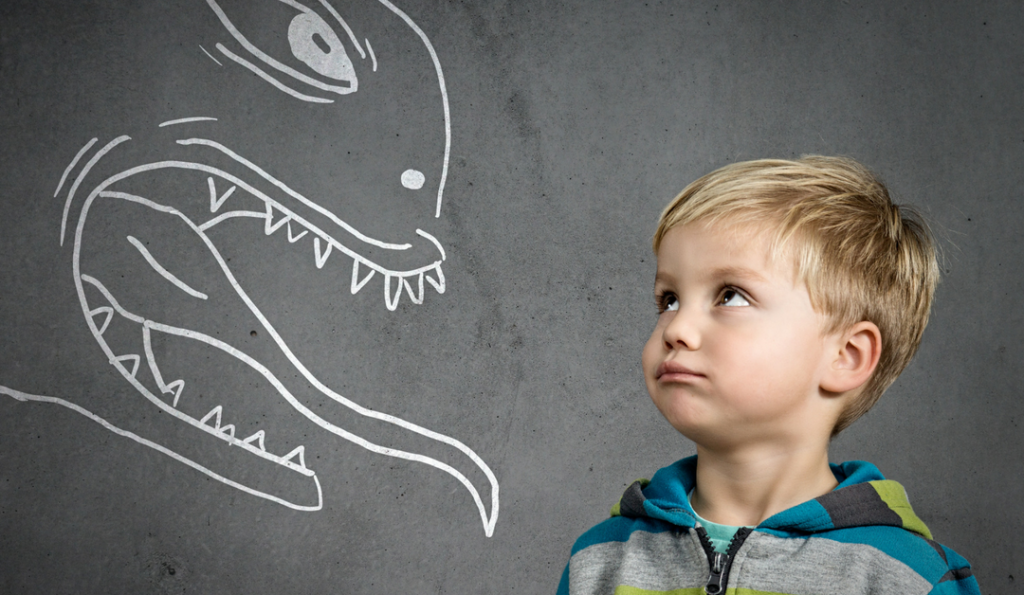Phobias happen when tame, harmless things turn into bullies. They take on a power they don’t deserve, in ways that often don’t make sense. The fear is real and persuasive, and for kids, they can be particularly debilitating. The good news is that phobias and fears in children are very manageable, and with the right guidance and strategies, kids can be empowered to move straight through the middle of the intense fears that get in their way.
What causes intense fears or phobias?
Often (but not always) when there are specific phobias or fears in children, there will be a starting point – something that happened that first made the fear come to life. It might be something that happened to the person, to someone else, or something that was heard about in a story, a movie or in the news. A fear of dogs for example, could have its beginnings in an actual scary encounter with a dog, hearing about someone being traumatised by a dog, or seeing a news story or a movie about a dog attack. That event is then generalised from something that happened because of one gnarly dog, to something that could happen with any dog. All dogs are then avoided in order to avoid the frightening feelings that is associated with them.
With a phobia, being in the presence of the feared thing will bring on a fight or flight reaction that is so strong as to send parts of the brain ‘offline’. This is because the brain believes so strongly in the threat, that it makes way for the person to act automatically, on raw instinct, without the intrusion of the part of the brain that would prefer to take time to analyse the situation and come up with a different plan.
The avoidance that comes with phobias aren’t so much about avoiding the feared thing, but about avoiding the intense feelings that come with it. These feelings are connected to the fight or flight response, a physiological response that involves the release of neurochemicals to get the body ready to fight for its life or run for it. When the body doesn’t fight or flee, there is nothing to burn the neurochemicals. They build up and bring intense emotion and physical sensations (such as a racy heart, sick tummy, clammy hands) that feel awful.


